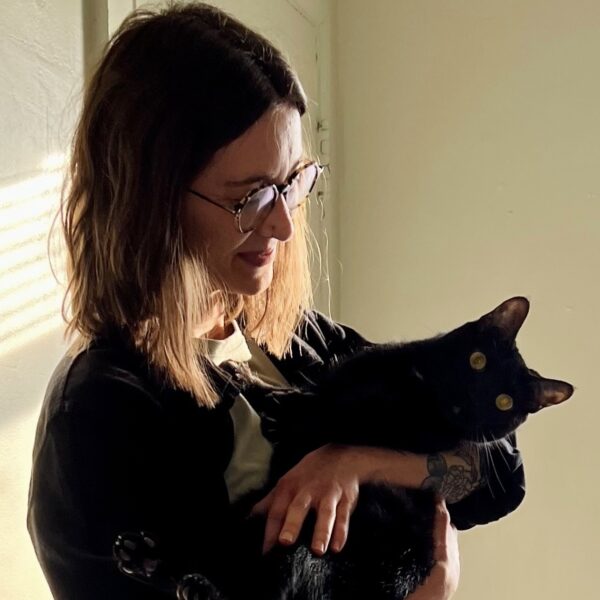In the HBO show Somebody Somewhere, the beloved character Joel introduces the main character, Sam, to “Choir Practice.” Simultaneously place, community, and event, Choir Practice is a weekly, nighttime variety-show-esque gathering of mostly queer folx and misfits at a local church. Joel’s involvement as an active member of the church is their “in” to using the space; the name is a cover for their gathering. It’s through Choir Practice that Sam forms a deeper friendship with Joel and a new friendship with trans soil scientist, professor, and Choir Practice master of ceremonies, Fred Rococo. It’s here that Sam starts singing again, and it’s where she (re) discovers a sense of place, belonging, and community in her Kansas hometown as she figures out her life after the loss of her sister.
Choir Practice is reminiscent of countless other queer spaces, societies, and clubs in history, of those spaces that become a haven for their regulars. It’s a perfect example, too, of the sociological concept of a “third place:” a space where one gathers for purposes of community and social life that is sufficiently separate and distinct from the primary spheres of “first place” (home) and “second place” (work).
The sociologist Ray Oldenburg coined the term in his 1989 book The Great Good Place, and in it he expounds a third place’s characteristics: it exists on neutral ground, it’s a social leveler—giving its patrons equal standing, the primary activity is conversation, it’s accessible and accommodating, it has friendly regulars and a low profile, the mood is playful, and it’s a home away from home. Third places, the “great good places,” offer their patrons novelty and perspective, raise spirits, and provide friend groups. They help fulfill humans’ needs for belonging. Coffee shops, clubs, parks, barber shops, bookstores, gay bars , nail salons, farmers markets, rec centers, churches, synagogues are all examples of possible third place spaces.
Oldenburg writes about these spaces because he thinks there’s a “problem of place in America,” that our sprawling, barren-street suburbs and poorly designed cities make it difficult to establish and access third places, that American life has struggled to adapt and create other forms of “integral community” to replace what was lost with the shift away from small towns. This problem, this lack of community, has long been felt by LGBTQIA+ people: existing in societies and systems that largely exclude queer ways of living and being has necessitated the creation of alternative third places. But we all have likely felt this problem again, and acutely, in these last couple of years: having lived through lockdowns of our ongoing pandemic, seeing our first, second, and third places disappear or collapse into one, seemingly never leaving home.
To “enter” second and third places in/since/during Covid has required going, not to separate places physically, but to separate places mentally (or emotionally, or spiritually), trying to access as much of the spirit of our second and third places as we can. But “daily life, in order to be relaxed and fulfilling, must find its balance in three realms of experience. One is domestic, a second is gainful or productive, and the third is inclusively sociable, offering both the basis of community and the celebration of it.” And, he stresses, there need to be physical distinctions between each of them. Covid has made this only more apparent.
In the last episode of Somebody Somewhere, Joel is now the character needing to rediscover a sense of place and belonging: he told the pastor of his church about Choir Practice, admitted that he had been lying to her, and decided, too, to take a break from formal religion. His friends from Choir Practice take him out to lift his spirits and to scout other spots to meet. Driving around town in Fred Rococo’s van that night, all of them together, talking, laughing, singing, he shouts, “This is church! This is church!” Choir practice is still Joel’s third place: his community and sense of belonging, fun and support are there. It is his great good place. May we understand the value of third places in our lives. May we each find our own great good place. And if we can’t, may we embody our queer legacies and create them.
REFERENCES:
Bos, Hannah and Paul Thureen, creators. Somebody Somewhere. Duplass Brothers Productions and The Mighty Mint, 2022.
Oldenburg, Ray. The Great Good Place: Cafés, Coffee Shops, Bookstores, Bars, Hair Salons, and Other Hangouts at the Heart of a Community. Hachette Books, 1999.




